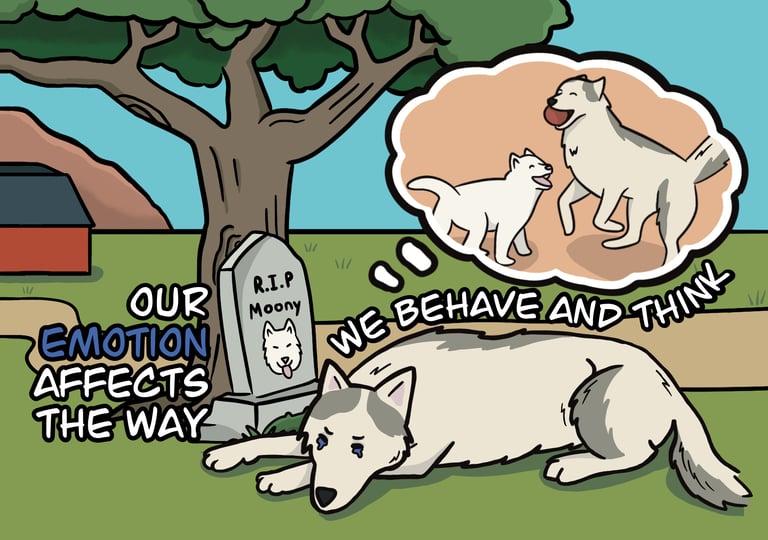Our Emotion Affects The Way We Behave and Think
HEART/FEELING


Let's dive deeper to understand how these parts of us influence each other within the framework of cognitive-behavioral therapy (CBT). Emotions are powerful affective states that play a significant role in how we think and behave. Whether we are feeling happy, excited, angry, or anxious, these emotions can influence our actions and thoughts in various ways. Understanding how our emotions affect our behavior and cognition enable us to explore strategies to manage them effectively.
Our emotional states can drive us to act in certain ways. For example, when we feel anxious, we might avoid situations that trigger this feeling, such as public speaking or social gatherings. Similarly, if we feel comfortable, we might loosen up or be at ease, allowing ourself to be our true self. Emotions can serve as a prompt for specific behaviors, often without us even realizing the connection.
Emotions do not just influence our behavior; they also affect our thoughts. When we are in a particular emotional state, our thinking patterns can change to reinforce that emotion. For instance, if you are feeling hopeful, you more likely to think "I will be able to find a way out" or "That may be a possibility". On the other hand, if you are feeling angry, your thoughts might become more negative or critical of others, leading to a cycle of negativity. This can result in cognitive biases where we perceive situations in a way that aligns with our current emotional state.
Managing Emotions
While emotions are a natural part of the human experience, it's important to manage them effectively to maintain mental well-being. Here are some strategies to help regulate emotions which might also be triggered by our thoughts and unmet needs: 1) Identify the Emotion 2) Identify the underlying cause of your emotion 3) Practice Mindfulness 4) Seek Support.
Since our emotions play a crucial role in shaping our thoughts and behaviors. It is important to become aware of these influences and utilizing strategies to regulate our emotions, so we can lead more balanced and fulfilling lives.
So... What is the most common emotion you have?
Product of JEM wayoflife
UEN: 53307176C
Contact Us
Want to join the HAY community?
© 2024. All rights reserved.
